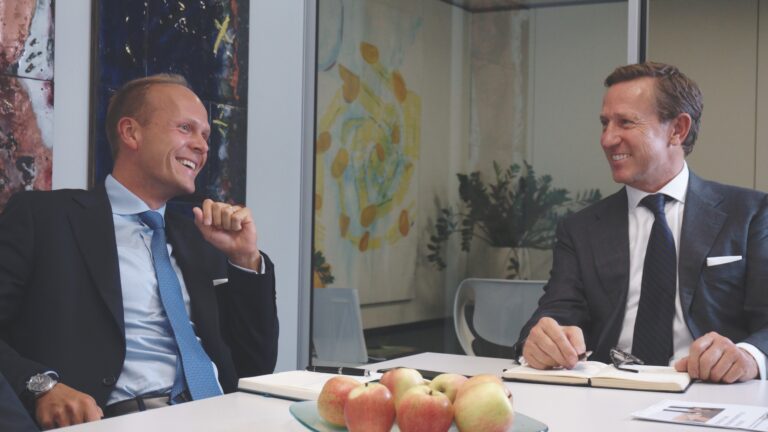No Stopping for the Prophets of Doom
Dear Ladies and Gentlemen
Seasonal reasons may be responsible for increased nervousness on the stock markets.
Gloomy times ahead
The prophets of doom are in high season. Some are supposedly world-famous stock market gurus; others are less known, yet a doomsday scenario connects them. They predict gloomy (stock market) times and tell their market crash stories. “The warners are warning again,” wrote the Swiss newspaper «Handelszeitung». So hardly anything is booming more than crash scenarios. “The prophets of doom are in top form.” Stagflation (much inflation, little growth), “bubbles everywhere” (not just in stocks), “the biggest U.S. fantasy trip ever”, “the crash is imminent, if not this year, then certainly early next year”.
Interests/Motivation
I wrote about this many times, Ladies and Gentlemen, and even if I risk repeating myself, please never forget there are always interests behind stories. No matter if we are looking at stories of a stock market crash or stories of booming markets. Always ask yourself the writer’s and speaker’s motivation behind the story he writes or tells us.
October 1929 – Facts
October is just around the corner, the month in which the biggest stock market crashes occurred. The most serious happened on October 24, 1929, when panic broke out on Wall Street for not entirely clear reasons. Stock exchange traders threw their securities on the market; private investors lost their savings, companies went bankrupt. They covered the loans with their shares, which were suddenly worth nothing. It was the mother of all crashes. A global depression lasting several years was the result.
October 1987 – Facts
An even bigger crash, but less disastrous, took place on Black Monday, October 19, 1987. (It happened during my last month of a 12-month internship at UBS Toronto, and I was (very young and very impressed) sitting in an office just above the Toronto Stock Exchange). The Dow Jones plunged 23 per cent in just one day, the most significant price drop ever. Five hundred billion U.S. dollars, almost a quarter of the market, vanished into thin air within a few hours.
More Facts
However, just 15 months later, share prices had largely recovered. The fall in share prices was also a consequence of the computerization of stock market trading. Traders had set sell limits. As soon as a price of a Stock XYZ fell to a certain level, the paper was sold. This started an avalanche. Since then, stock exchanges have learned. To prevent a cascade, like the one on that Black Monday, computerized stock market trading is stopped as soon as panic breaks out and an uncontrolled downward spiral gets underway. This was also the case on September 11, 2001 (when terrorist attacks brought down the Twin Towers in Manhattan), during the Great Financial Crisis in 2008 and the Covid-19 Crisis last year.
Volatility/Risk
As unfortunate as it may seem, volatility/risk is part of the game. Volatility is the price we have to pay to get maybe (there is no certainty) awarded with returns. Of course, prophets of doom will always try to scare investors out of investments, and as every broken analogue watch twice a day shows the right time, they will from time to time be correct, but history and statistics show that without doubt, a basket containing equities of trustworthy companies remain one of the best long-term investments there is.
Outlook
I cannot foresee the future and therefore cannot give any outlook. However, If you are invested in solid business models that produce ample cash flows, your investments’ price should not necessarily be seen as a snapshot. Our private client’s portfolios are in constant motion. On weak days we tend to add to the positions. On boom days, we let go of some stock. Always in very low single-digit percentages of the entire portfolio and never with leverage. Of course, we never get it right 100%, but we tend to harvest decent and relatively stable returns over the years, and since we invest solely in companies producing positive net cashflows, willing to let investors participate in the form of dividends, etc. our investors take advantage of the effect of compounding.
Fear
Fear should not rule our lives and our investment behaviour neither. Caution makes sense, after all, we live in a risky market environment. However, fear does not make sense in my opinion.
Ladies and Gentlemen
As always, please share your opinion with me, but please do not forget (instead of hitting the reply button) to send your messages to: smk@incrementum.li
Many thanks, indeed!
I wish you an excellent start to the day, a wonderful weekend, and above all, good health!
Yours truly,
Stefan M. Kremeth
Wealth Management
Incrementum AG – we love managing assets
Tel.: +423 237 26 60
Cell: +41 79 303 48 39
Im alten Riet 102
9494 Schaan/Liechtenstein
Mail: smk@incrementum.li

